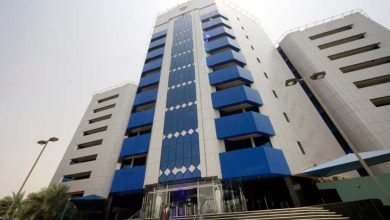Merging State Ministries: A Necessity Driven by Current Circumstances

Report by: Rehab Abdullah
The decision by Minister of Federal Governance, Mohamed Kortikila Saleh, to merge several state ministries has sparked mixed reactions. This move aims to reduce financial and administrative burdens amidst Sudan’s economic, political, and security challenges, aligning with the Sovereign Council’s directives to establish streamlined state governments.
“Testing the Tested”
Banking expert Walid Dalil expressed skepticism about the effectiveness of merging ministries, stating that such administrative reforms—whether dismantling, unbundling, or merging institutions—have proven ineffective in Sudan over the past four decades. Speaking to Al-Ahdath, he noted that these experiments have led to declining performance, reduced productivity, and increased government costs for taxpayers.
Dalil emphasized that genuine administrative reform should address the deficiencies in institutional capacity and employee skills. He called for improving staff performance, enhancing their service delivery capabilities, and curbing corruption. Moreover, he argued for setting clear strategic goals, building administrative systems capable of achieving them, and adopting a merit-based approach to public service appointments and promotions. Dalil stressed the importance of defining qualifications for leadership positions in government departments and ministries.
Reform Pillars
Dalil outlined three key pillars for advancing administrative reform:
1. Simplifying and Streamlining Services: Treating citizens as clients or development partners, and viewing administrative outputs as products evaluated from the consumer’s perspective, focusing on quality and efficiency.
2. Reducing Administrative Corruption: While eliminating corruption entirely may be unrealistic, minimizing it should be a primary outcome of reform efforts.
3. Clear Reform Philosophy: Administrative reform must involve diagnosing problems and their causes, translating these into specific objectives, and designing, implementing, and evaluating appropriate programs.
Dalil further explained that reducing bureaucratic layers involves clearly defining functional roles for specific entities. This approach enhances management efficiency by optimizing the use of available resources—whether material or human—to achieve quality objectives swiftly and effectively. This principle applies to both service-oriented and production-oriented entities, emphasizing specialization and minimizing administrative bloating.
A Crucial Step
Economic expert Dr. Haitham Fathi endorsed the merger as an essential measure, arguing that consolidating state ministries can enhance effectiveness and coordination across government sectors. Speaking to Al-Ahdath, Fathi described this as a long-standing need to reduce administrative layers and government expenditures.
Urgent Restructuring
Fathi underscored the necessity of restructuring state and federal governments in light of Sudan’s complex political, economic, social, and security challenges. He lamented the delay in implementing such reforms, noting that following South Sudan’s secession in 2011, the Sudanese government should have restructured its governance framework. Given current crises, he advocated forming an “emergency government” or “war cabinet” to address pressing economic and national challenges.
Federal Ministry Mergers
Fathi also called for similar consolidation at the federal level to reduce ministerial portfolios. He sees this as a critical step toward achieving governance efficiency, enhancing performance, and curbing corruption and financial waste. He criticized administrative inflation for its detrimental impact on service quality, project delays, and inefficient budget allocation, all of which hinder development and effective crisis management.
However, Fathi warned that the success of these measures depends on proper oversight. While the idea of merging ministries is positive and necessary, its practical implementation must be intelligent and goal-oriented to deliver the intended outcomes.
The decision entails merging the ministries of finance, investment, agriculture, industry, livestock, and labor into a single entity. Similarly, education, infrastructure, religious affairs, youth, and sports will merge under the Ministry of Education and Services. The health, social welfare, zakat, health insurance, pensions, and humanitarian aid portfolios will combine into a unified Ministry of Health and Social Development.



